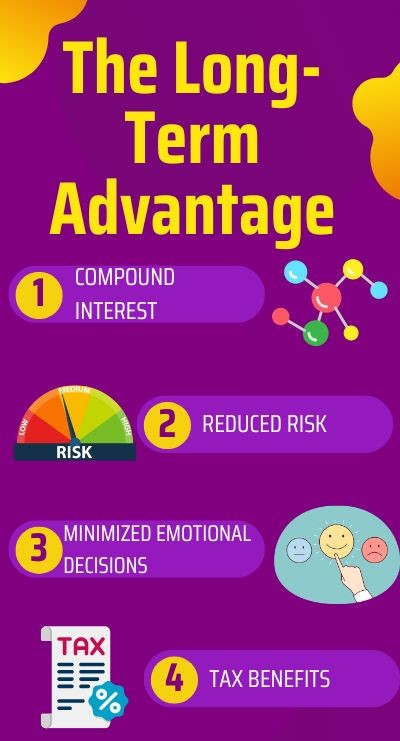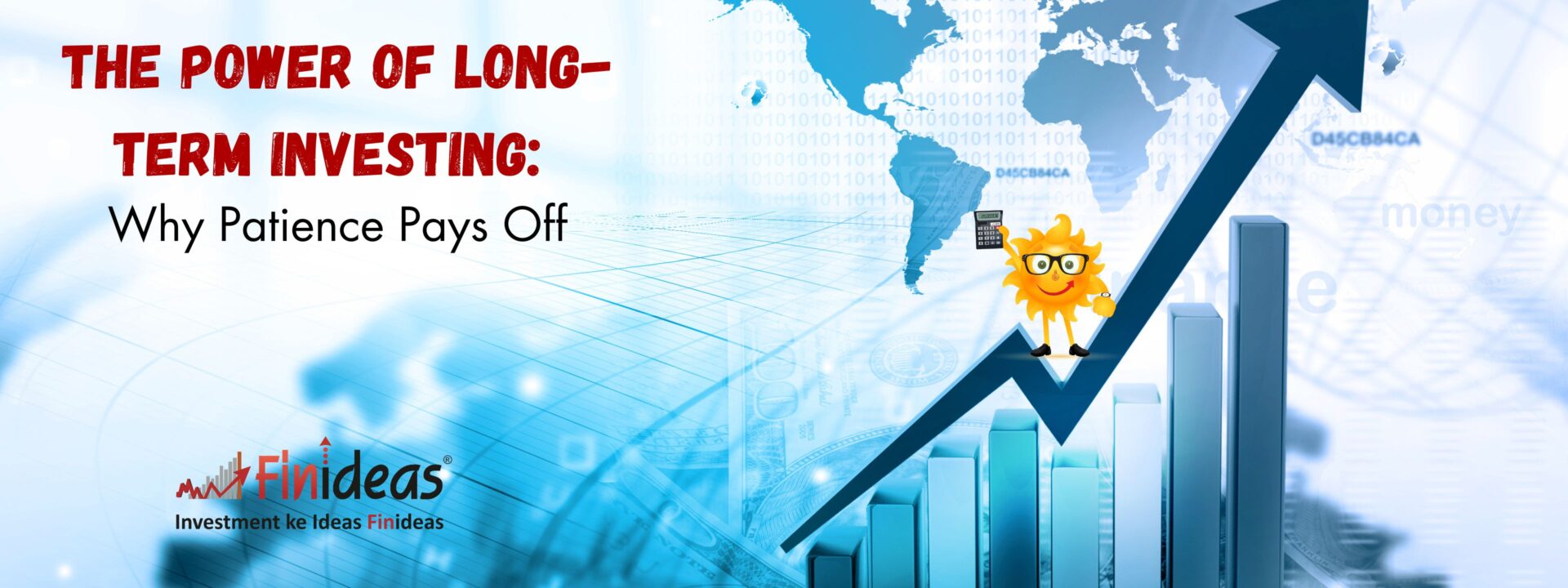The Power of Long-Term Investing: Why Patience Pays Off
Introduction
In today’s fast-paced world, where information travels at the speed of light and instant gratification is the norm, the concept of long-term investing might seem like a relic of the past. However, the age-old adage, “Patience is a virtue,” holds true when it comes to investing. In this blog, we will explore the power of long-term investing and why patience pays off in the world of finance.
The Short-Term Temptation
In the era of day trading and quick profit schemes, it’s easy to succumb to the allure of short-term gains. The stock market’s constant fluctuations and the excitement of making quick money can be tempting. However, this short-term mindset often leads to impulsive decisions and higher levels of risk.
The Myth of Timing the Market
Many investors believe they can outsmart the market by timing their investments perfectly. They aim to buy low and sell high, but in reality, accurately predicting market movements consistently is incredibly challenging, even for seasoned professionals. Attempting to time the market often results in missed opportunities and increased transaction costs.


The Long-Term Advantage
Long-term investing involves purchasing assets with the intention of holding them for an extended period, typically several years or more. This approach has several key advantages:
- Compound Interest: Albert Einstein once referred to compound interest as the “eighth wonder of the world.” The longer your money is invested, the more time it has to grow exponentially. Over time, even small gains can compound into substantial wealth. There will be compounding effect if you invest for long term and also you should check out Index Long Term Strategy if you are invested for Long Term Investment.
- Reduced Risk: Short-term market volatility and price fluctuations have less impact on long-term investments. By holding assets through market cycles, you can weather downturns and benefit from the overall upward trajectory of the market.
- Minimized Emotional Decisions: Long-term investing reduces the temptation to make impulsive decisions based on fear or greed. Emotional trading often leads to losses, while a patient approach allows investors to stick to their strategies.
- Tax Benefits: In many countries, long-term capital gains are taxed at a lower rate than short-term gains. This can significantly boost your after-tax returns.
Examples of Successful Long-Term Investors
- Warren Buffett: Often referred to as the “Oracle of Omaha,” Warren Buffett’s investment philosophy is built on long-term value investing. His patience and disciplined approach have made him one of the wealthiest individuals in the world.
- Peter Lynch: The legendary fund manager behind Fidelity Magellan Fund, Peter Lynch, famously advised investors to “buy what you know.” He held stocks for years, allowing them to appreciate in value.
- John Bogle: The founder of Vanguard Group, John Bogle, revolutionized the investment industry by introducing index funds. His commitment to low-cost, long-term investing has benefited countless investors.
Conclusion
In a world that often celebrates quick wins and instant gratification, it’s essential to remember that long-term investing remains a powerful strategy. Patience truly pays off in the world of finance. By focusing on the long game, harnessing the magic of compound interest, and avoiding the pitfalls of emotional trading, investors can build wealth steadily and sustainably. Whether you’re just starting your investment journey or reevaluating your portfolio, consider embracing the power of long-term investing—it’s a proven path to financial success.
Do you have any successful long term investors examples? Do tell us in the comment section.
Happy Investing!
This article is for education purpose only. Kindly consult with your financial advisor before doing any kind of investment.

